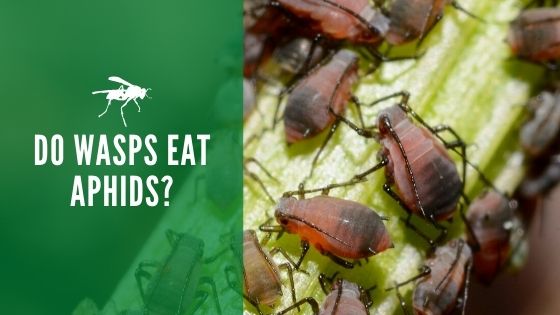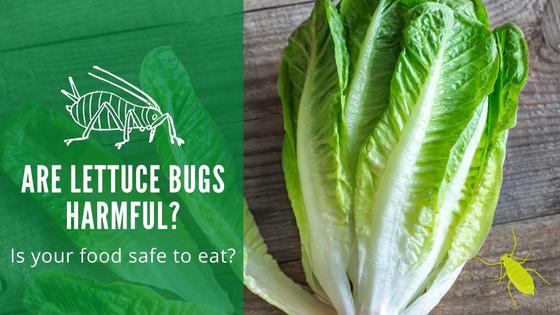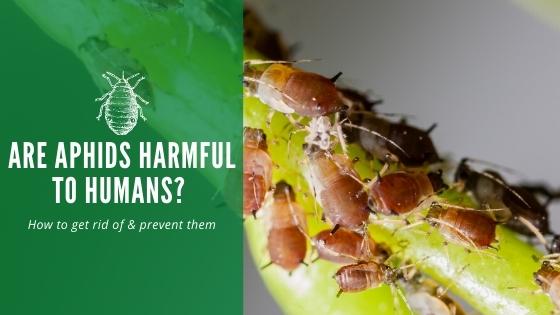Do Wasps Eat Aphids?

Aphids are a small but highly destructive garden pest that can wreak havoc on your plants quickly. They can weaken your plants quickly by sucking sap from the stems, but they have natural predators that can be your friend. This article will explore whether wasps eat aphids and some other ways to rid yourself of these common garden pests.
What Type of Wasps Eat Aphids?
Aphids have several forms of reproduction, and eggs hatch every seven to eight days. Every adult female can produce up to 80 offspring per week. Aphids can produce sexually and asexually, which gives them an advantage. Aphids can be difficult to manage once they get started, but wasps can be your best friend when it comes to aphid control.
Some wasps only eat one type of insect or a limited diet, but some wasps are not picky when it comes to mealtime. Social wasps, like yellowjackets, paper wasps, and hornets, will feed on any available insect, including aphids. These wasps will sting people, but only when they feel threatened, or their nests are disturbed. They can help control many pests in your garden, so you might want to let them go on their way when you see one.
Parasitic Wasps
One special kind of wasp is worth mentioning when it comes to aphid control. Braconid wasps are a group of wasp species that helps control aphids and other pests in the garden. The one of interest in the control of aphids is in the Aphidius species.
The Braconid wasp is brown or black. They have a typical narrow wasp-shaped torso and transparent wings. They less than 1/8 inch long (2mm), so they are tiny.
They do not eat aphids, but they do something much more sinister. The female lays eggs in the body of the aphid. When the eggs hatch, the wasp larvae eat their way out of the aphid’s body and consume it, leaving behind a mummified aphid body. Then, the larvae transform into adults that will go on to lay eggs in more aphids.
What Other Predators Eat Aphids?
Aphids have other natural predators, too. One of the most well-known is ladybugs, also known as lady beetles or ladybird beetles. Some types of beetles, including the soft-winged flower beetle and soldier beetle, will also eat them.
Some types of flies like long-legged flies, hoverflies, and predacious midges also have aphids on the menu. Green lacewings are generalists, but they love to eat soft-bodied aphids. Damsel bugs, big-eyed bugs, and minute pirate bugs also consider aphids to be a tasty snack.
You can purchase some of these insects online, such as ladybugs, lacewings, and predacious midges, and introduce them into your garden. This can be especially effective in a greenhouse or tunnel where they cannot fly away and have a limited food source, aphids. You can also use plants in your garden that attract certain species of beneficial insects. Providing an appropriate habitat will encourage them to come and stay.
Other Ways to Get Rid of Aphids?
If you are not particularly fond of having yellowjackets and hornets in your garden, some other methods that you can use to control aphids include spraying them off with the garden hose, but this only works before the infestation becomes bad.
You can also prune any branches or stems where you see them, but only if you catch the infestation early. You can make an aphid spray by mixing a few tablespoons of castile soap into 2 gallons of water. Spray your plants with this mixture, but be sure not to use any soaps that contain detergents, degreasers, or moisturizers.
Neem oil is a natural aphid repellant, but it will repel any beneficial insects like bees and other pollinators, too. Neem oil made for use on plants is already mixed, or you can purchase neem oil and mix it according to the directions.
You will need to shake the sprayer frequently. Other essential oils, including peppermint, clove, thyme, and rosemary, will also repel aphids. Each of these solutions must be reapplied after watering or after rain.
The key to controlling aphids, or any other pest or disease in the garden, is to catch it early. You should inspect your plants at least twice a week to catch early warning signs.
Look on the stems and undersides of leaves. Many different methods can be used to control aphids, but they are all most effective when you begin them early.


